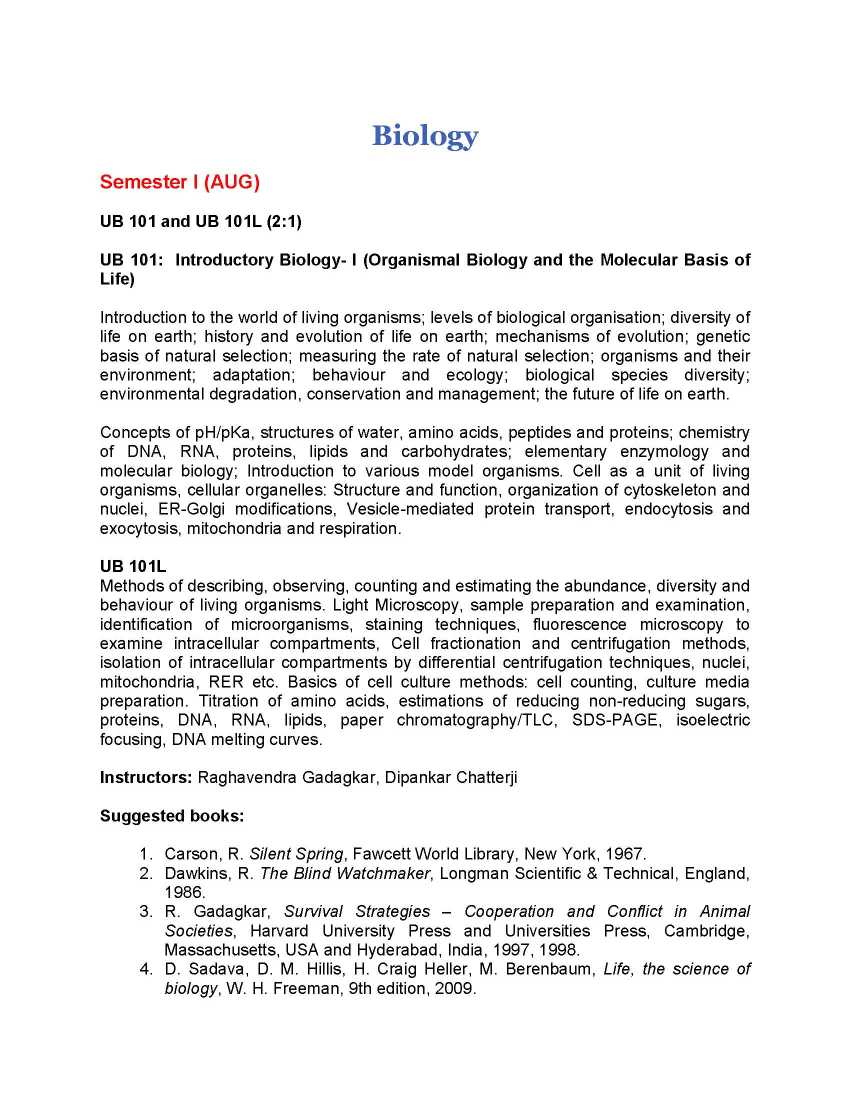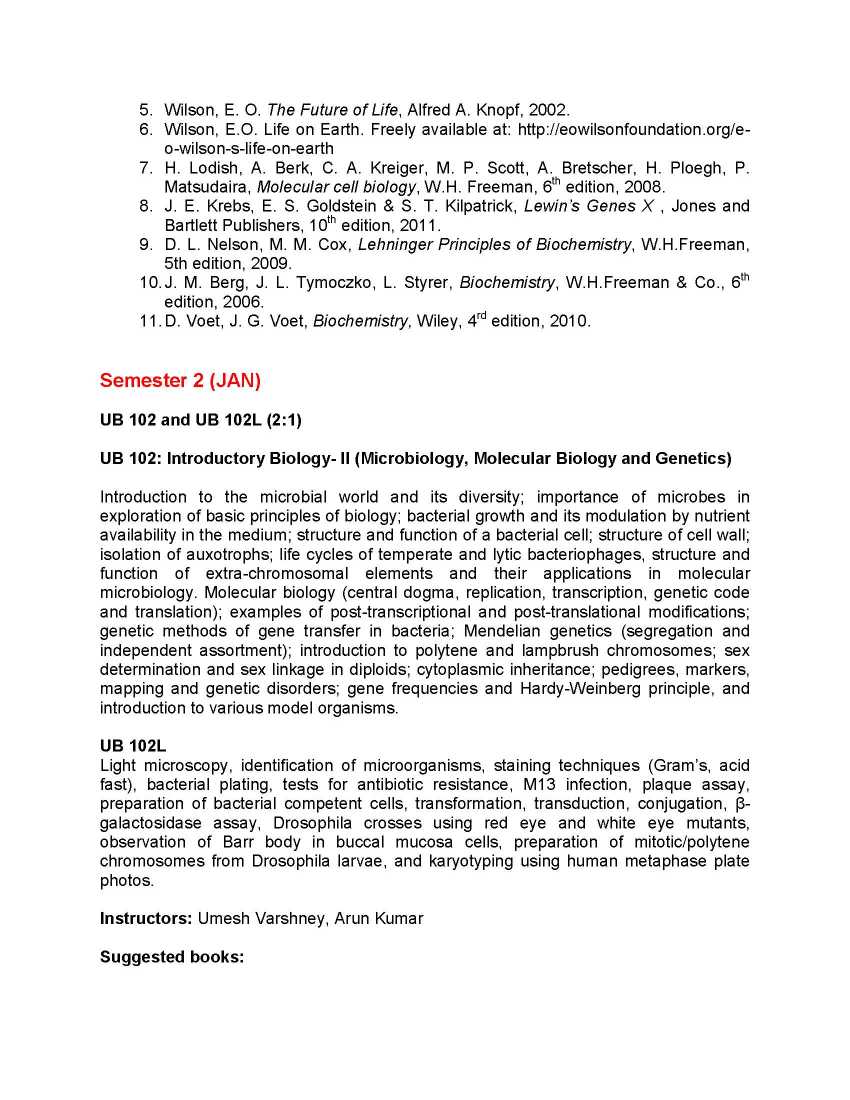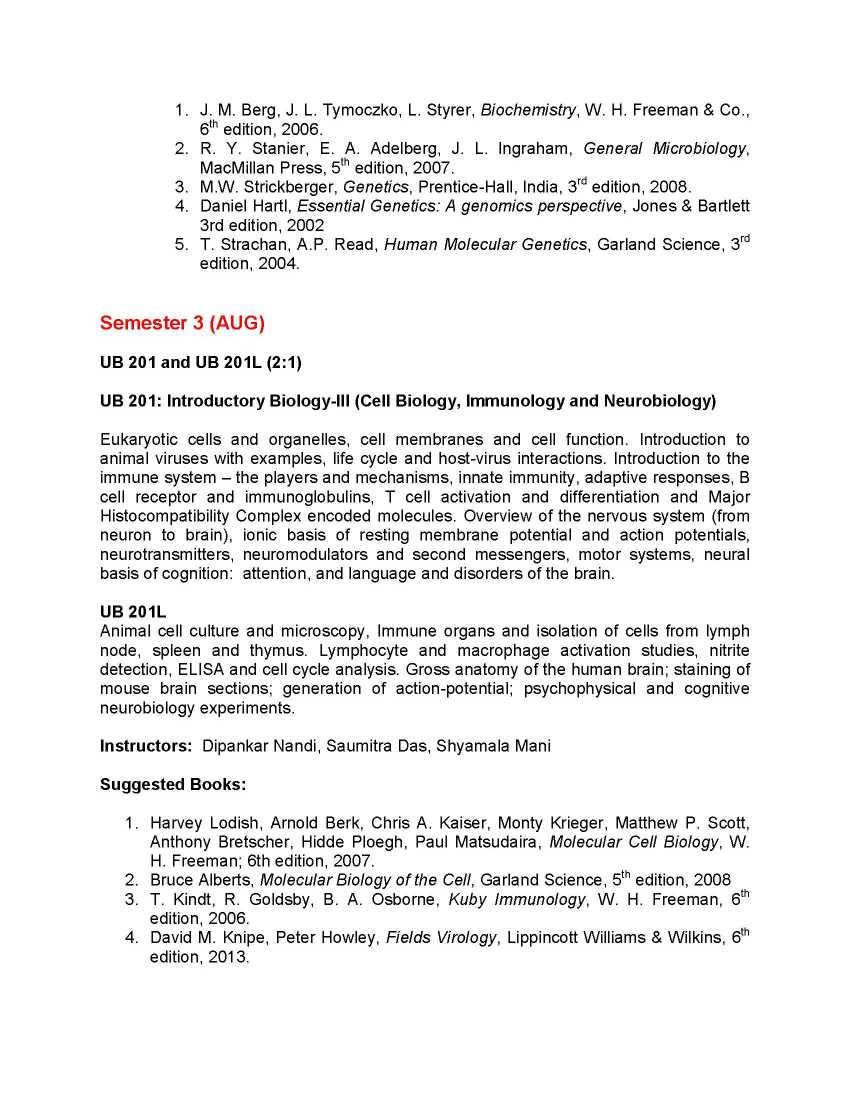|
#2
October 3rd, 2017, 08:57 AM
| |||
| |||
| Re: Graduate Courses at IISC Bangalore
The IISC Bangalore was founded in 1909. It is one of top Engineering Institutions in India. It offers many Under Graduate, Post Graduate and Research Programs. The IISC Bangalore offers Bachelor of Science (B.S) - Research Program as UG Course. Major disciplines for BS Research Program: Biology Chemistry Materials Humanities Physics Mathematics Earth & Environmental Science Engineering Information Handbook and Scheme of Instruction Course Duration: 4 Years Mode: Full Time Total Semesters: 08 Eligibility: 10+2 with Science Stream with minimum 60% marks from recognized Board Science Stream: Physics, Chemistry and Mathematics Selection Mode: KVPY / (IIT)JEE-Main / (IIT)JEE-Advanced / NEET-UG Application Fee: Rs. 500/- for GN/OBC/KM candidates and Rs. 250/- for SC/ST/PWD categories Here I am giving curriculum of BS Research – Biology Program: BS Research – Biology Program Syllabus Semester I (AUG) UB 101: Introductory Biology- I (Organismal Biology and the Molecular Basis of Life) Introduction to the world of living organisms; levels of biological organisation; diversity of life on earth; history and evolution of life on earth; mechanisms of evolution; genetic basis of natural selection; measuring the rate of natural selection; organisms and theirenvironment; adaptation; behaviour and ecology; biological species diversity;environmental degradation, conservation and management; the future of life on earth. Concepts of pH/pKa, structures of water, amino acids, peptides and proteins; chemistryof DNA, RNA, proteins, lipids and carbohydrates; elementary enzymology andmolecular biology; Introduction to various model organisms. Cell as a unit of livingorganisms, cellular organelles: Structure and function, organization of cytoskeleton andnuclei, ER-Golgi modifications, Vesicle-mediated protein transport, endocytosis andexocytosis, mitochondria and respiration. UB 101L Methods of describing, observing, counting and estimating the abundance, diversity andbehaviour of living organisms. Light Microscopy, sample preparation and examination,identification of microorganisms, staining techniques, fluorescence microscopy toexamine intracellular compartments, Cell fractionation and centrifugation methods,isolation of intracellular compartments by differential centrifugation techniques, nuclei,mitochondria, RER etc. Basics of cell culture methods: cell counting, culture mediapreparation. Titration of amino acids, estimations of reducing non-reducing sugars,proteins, DNA, RNA, lipids, paper chromatography/TLC, SDS-PAGE, isoelectricfocusing, DNA melting curves. Semester 2 (JAN) UB 102: Introductory Biology- II (Microbiology, Molecular Biology and Genetics)UB 102: Introductory Biology- II (Microbiology, Molecular Biology and Genetics)Introduction to the microbial world and its diversity; importance of microbes inexploration of basic principles of biology; bacterial growth and its modulation by nutrientavailability in the medium; structure and function of a bacterial cell; structure of cell wall;isolation of auxotrophs; life cycles of temperate and lytic bacteriophages, structure andfunction of extra-chromosomal elements and their applications in molecularmicrobiology. Molecular biology (central dogma, replication, transcription, genetic codeand translation); examples of post-transcriptional and post-translational modifications;genetic methods of gene transfer in bacteria; Mendelian genetics (segregation andindependent assortment); introduction to polytene and lampbrush chromosomes; sexdetermination and sex linkage in diploids; cytoplasmic inheritance; pedigrees, markers,mapping and genetic disorders; gene frequencies and Hardy-Weinberg principle, andintroduction to various model organisms. UB 102L Light microscopy, identification of microorganisms, staining techniques (Gram’s, acidfast), bacterial plating, tests for antibiotic resistance, M13 infection, plaque assay,preparation of bacterial competent cells, transformation, transduction, conjugation, β-galactosidase assay, Drosophila crosses using red eye and white eye mutants,observation of Barr body in buccal mucosa cells, preparation of mitotic/polytenechromosomes from Drosophila larvae, and karyotyping using human metaphase platephotos Semester 3 (AUG) UB 201: Introductory Biology-III (Cell Biology, Immunology and Neurobiology) Eukaryotic cells and organelles, cell membranes and cell function. Introduction toanimal viruses with examples, life cycle and host-virus interactions. Introduction to theimmune system – the players and mechanisms, innate immunity, adaptive responses, Bcell receptor and immunoglobulins, T cell activation and differentiation and MajorHistocompatibility Complex encoded molecules. Overview of the nervous system (fromneuron to brain), ionic basis of resting membrane potential and action potentials,neurotransmitters, neuromodulators and second messengers, motor systems, neuralbasis of cognition: attention, and language and disorders of the brain. UB 201L Animal cell culture and microscopy, Immune organs and isolation of cells from lymphnode, spleen and thymus. Lymphocyte and macrophage activation studies, nitritedetection, ELISA and cell cycle analysis. Gross anatomy of the human brain; staining ofmouse brain sections; generation of action-potential; psychophysical and cognitiveneurobiology experiments BS Research – Biology Program Syllabus    Contacts Indian Institute of Science Bangalore - 560 012 Email: deanugoff@admin.iisc.ernet.in Phone: +91-80-22933400 Fax : +91-80-23600853 |